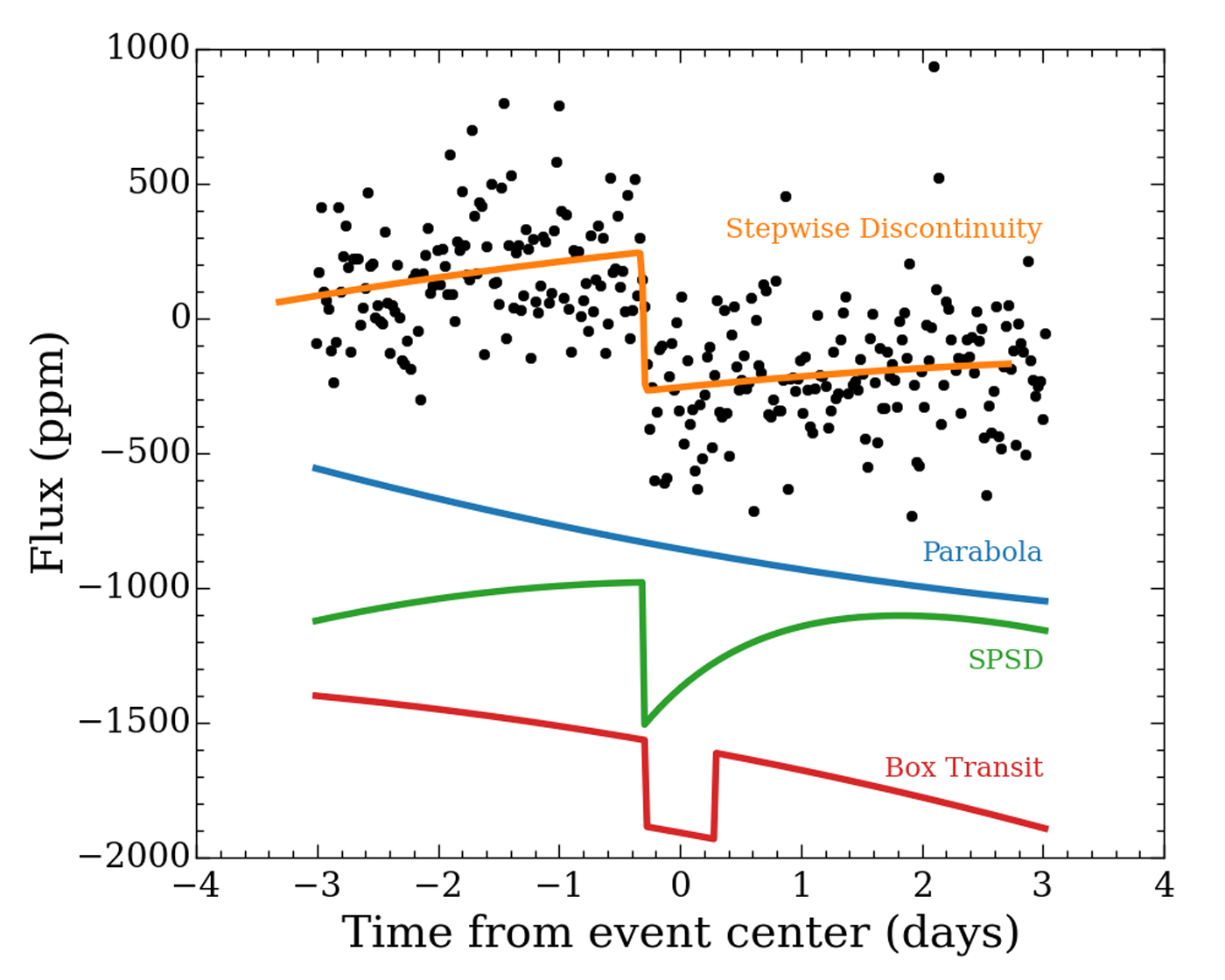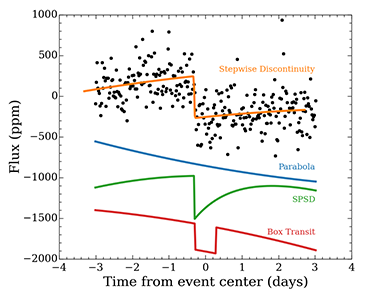
The Kepler Project has been enormously successful at finding planets around other stars. Over 1,000 have been confirmed to date, with more than 3,500 additional candidates awaiting independent confirmation in the near future.
However, this search has also turned up many false alarms.
One source of these misleading signals is the algorithms used in the search. In addition to exoplanets, variable stars and eclipsing binaries also appear in the Kepler data. These false signals must be identified and removed before we can make an addition to a planet candidate catalog.
Another source of incorrect detections is “instrumental artifacts.” These occur when changes in the telescope, such as slight shifts in the pointing of the spacecraft or the way in which the telescope is heated, imprint small signals into the Kepler data that can mimic the signal from a planetary transit.
To minimize these artifacts, the Kepler Team has introduced a new algorithm, named “Marshall.” For each individual transit event, Marshall fits the data near the time of the transit with a model, as well as models of a number of known artifact signals. It then uses a statistical measure called the Bayesian Information Criterion (BIC) to decide which model best matches the data.
When using this algorithm, we find that many candidate planets discovered with the old, long-period approach are actually false alarms. We estimate that one in four of the planet candidates in recent catalogs with periods longer than 300 days are actually instrumental artifacts and not new planetary systems.
However, with continuous use of Marshall, it is hoped new there will be improved accuracy in finding new worlds, especially those located within their star’s habitable zone.
*Marshall is named by Fergal Mullally's son after a character from the cartoon Paw Patrol.
Example of data analysis. (Big Image)
Fergal Mullally
Kepler Science Officer
Fergal Mullally is a Kepler Scientist at the SETI Institute.






